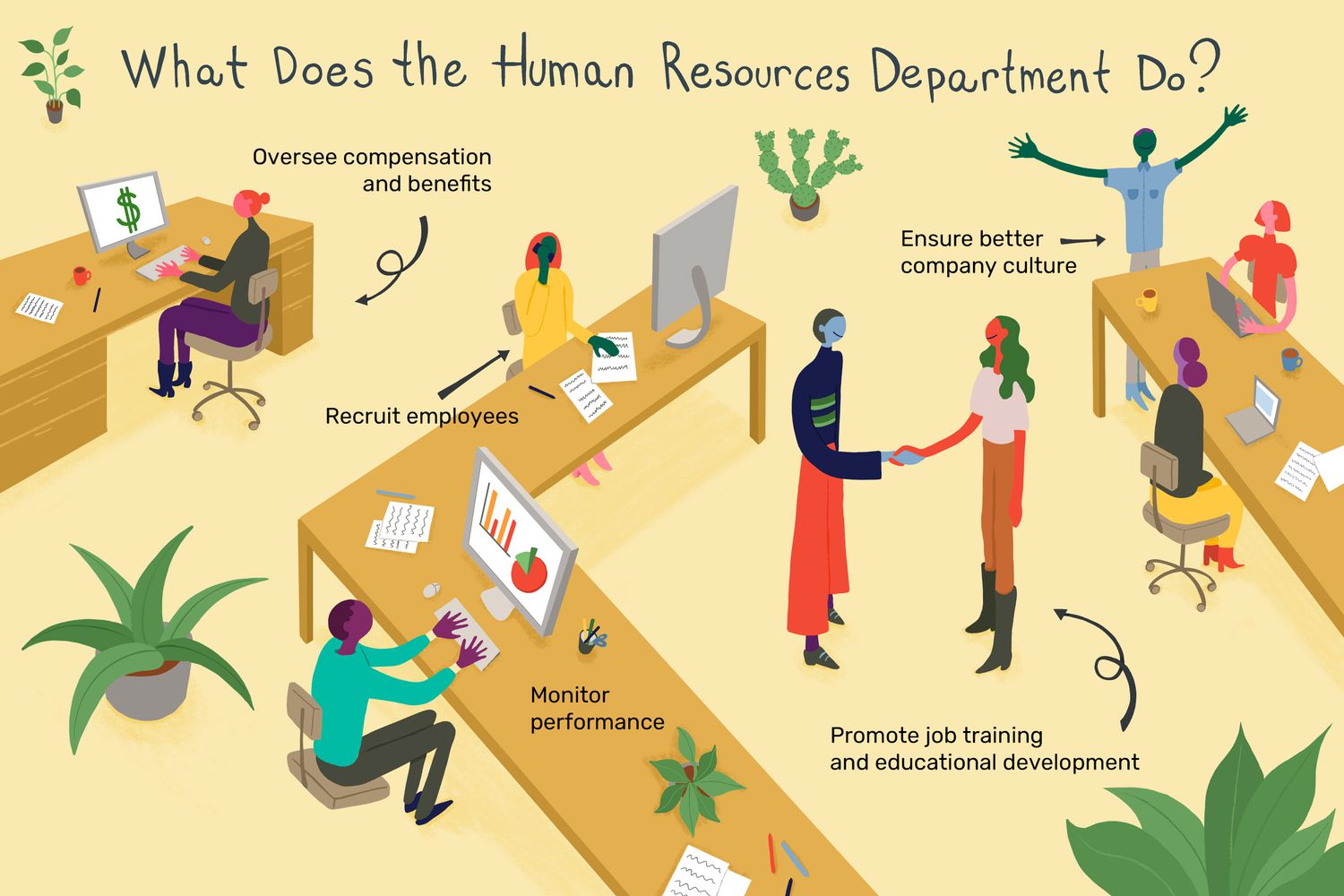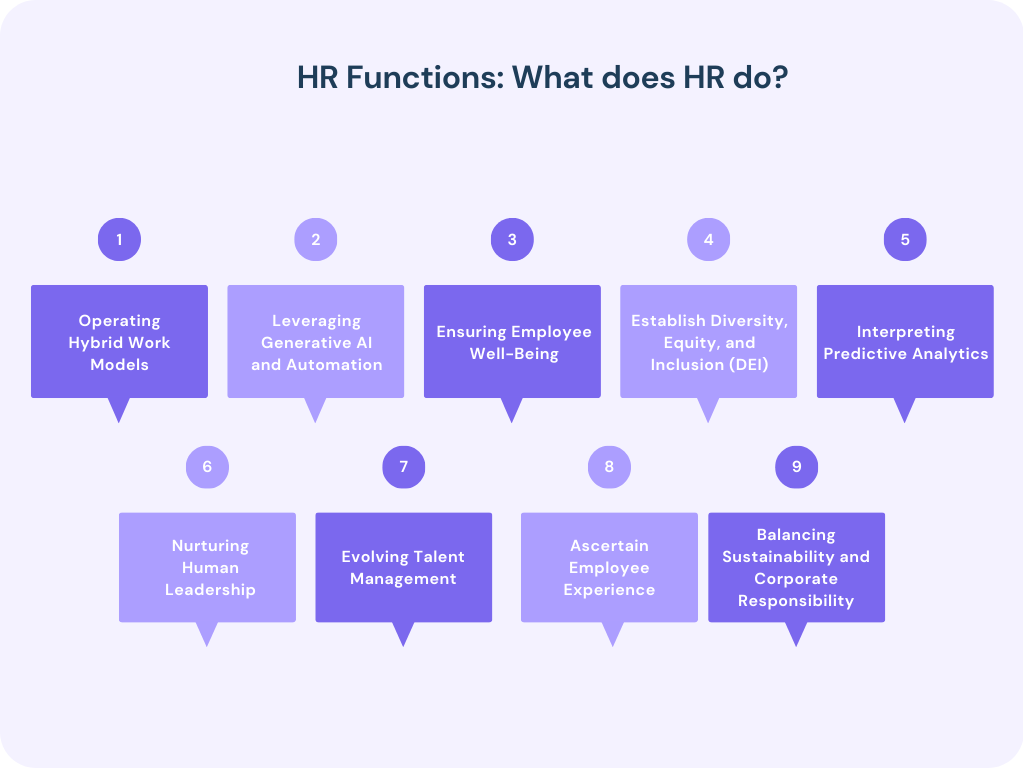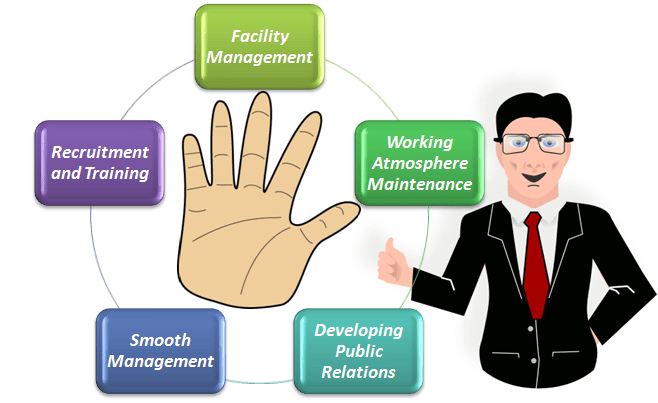
How can we help you today?
Registered Office
Infowan Technologies Pvt Ltd
Mumbai-401107. INDIA.
Contact Details
+91 98201 97205
+91 98201 26871
+91 98670 74415
support@infowan.net
info@infowan.net
What is HR in company? It’s the function that handles your most valuable business resource—your people. From hiring top talent to managing payroll and fostering workplace culture, HR ensures every employee thrives while aligning with the company’s goals.

Many businesses say “Our people are our greatest asset,” and HR is the engine that supports, protects, and develops that asset. In today’s business landscape, HR isn’t just an administrative function—it’s a vital strategic partner.
In this detailed guide, you’ll discover exactly what is HR in a company, why it matters in 2025, and how it’s transforming businesses across the globe. Whether you're a startup founder or HR professional, this article will help you understand why HR is important for growth and sustainability.
What is HR in a company? It refers to the Human Resources department that manages the entire employee experience, from hiring and training to performance reviews and career development. It also plays a key role in legal compliance, culture building, and strategic planning.
Traditionally, HR focused on administrative tasks like payroll and documentation. But today, it acts as a strategic partner—helping businesses build strong teams, boost employee engagement, and maintain a positive workplace culture.
The core elements that define what is HR in company include:
Understanding what is HR in a company helps leadership teams align their people strategy with their business objectives.
If you're wondering what is HR in company really responsible for, here's a comprehensive list of key duties:

Together, these roles clarify what is HR in a company—a strategic team that helps both people and businesses thrive.
Depending on a company's size and complexity, HR structures can vary. Here’s how businesses typically organize their HR departments:
These models show that what is HR in company depends not only on function but also on how the department is structured to serve business goals.
Behind every high-performing team is a strong HR department. Here's how HR helps employees thrive:
A great HR team ensures that every employee feels heard, valued, and supported. This is a major reason why HR is important—because people success equals business success.
Many leaders now realize that understanding what is HR in company goes hand in hand with achieving business goals. Here’s how HR contributes to growth:
Take companies like Google or Microsoft—HR plays a major role in innovation, not just hiring. That’s why HR is important not only in sustaining the business but in scaling it too.

Technology continues to reshape what is HR in company today. Here are the tools HR teams rely on:
By integrating these tools, HR teams improve accuracy, efficiency, and employee experience.
As we move into the future, companies face growing HR-related challenges:
These are key considerations when asking what is HR in company today. The HR team must stay flexible, tech-savvy, and people-focused.
A strong HR department doesn’t happen by accident. Here are best practices every business should follow:
These actions show why HR is important to building sustainable, people-first companies.
Looking to elevate your HR strategy in 2025? Discover how InfowanHR can help:
Join over 2.7 million users across 4+ countries already transforming their HR with InfowanHR.
Request a Demo at infowan.net or call +91 98201 97205 to speak with an expert.
So, what is HR in company? It’s the foundation of a productive, compliant, and people-centered workplace. HR ensures that employees feel valued, motivated, and aligned with business goals.
More than just a department, HR is a strategic force that enables growth, fosters innovation, and protects company culture. As businesses face rapid change, HR continues to be the guiding hand behind every successful team.
Understanding what is HR in company will help organizations of all sizes realize that human potential is their ultimate advantage.
Q1.
What is HR in company and why is it essential?
HR is the function that manages employees—hiring, training, payroll, and more. It's essential because it ensures smooth operations, compliance, and people success.
Q2.
Why HR is important for startups?
HR helps startups create structure, scale teams efficiently, and avoid legal risks—key elements for rapid growth.
Q3.
What does HR do daily?
HR handles recruitment, manages employee issues, tracks attendance, processes payroll, and supports leadership with workforce data.
Q4.
How does HR help with compliance?
HR ensures company policies align with labor laws, reducing the risk of penalties and legal issues.
Q5.
Can HR improve employee engagement?
Yes, through recognition programs, feedback channels, and cultural initiatives, HR boosts morale and retention.
Q6.
What tools does HR use today?
Modern HR relies on cloud software for onboarding, performance management, attendance tracking, and recruitment.
Q7.
What is HR in company structure?
It can be in-house, outsourced, or hybrid—depending on company size and needs.
Q8.
How is HR evolving in 2025?
HR is becoming more digital, strategic, and employee-focused—playing a bigger role in business planning and innovation.
Best HR Software in India | Top HR Software in India | What is an HR System? | Online HR Management Software | Best Payroll Software in India | Employee Payroll Management System | What is a Payroll System? | What is Payroll? | Payroll in HR | What is a Payroll Company? | What is Payroll Management? | Payroll Processing Explained | What is HRMS? | Understanding HRMS Systems | How to Use HRMS Software | Role of HR in a Company | What is HR Management? | Employee Engagement in HR | HR Recruitment Explained | What is Business Management? | Management Information System | Human Resources Management | 7 Roles of HRM | What is Office Management? | What is Human Resources? | Meaning of HR | Top HR Interview Questions | What is HR? | HR Analytics Explained | What is HR Compliance? | What is Payroll Software? | Top 10 Payroll Software in India | Human Resource Management Guide | Best HRMS System | HR Management System Software | HR Software for Small Business | Best HRMS Employee Self Service | Functions of HRM